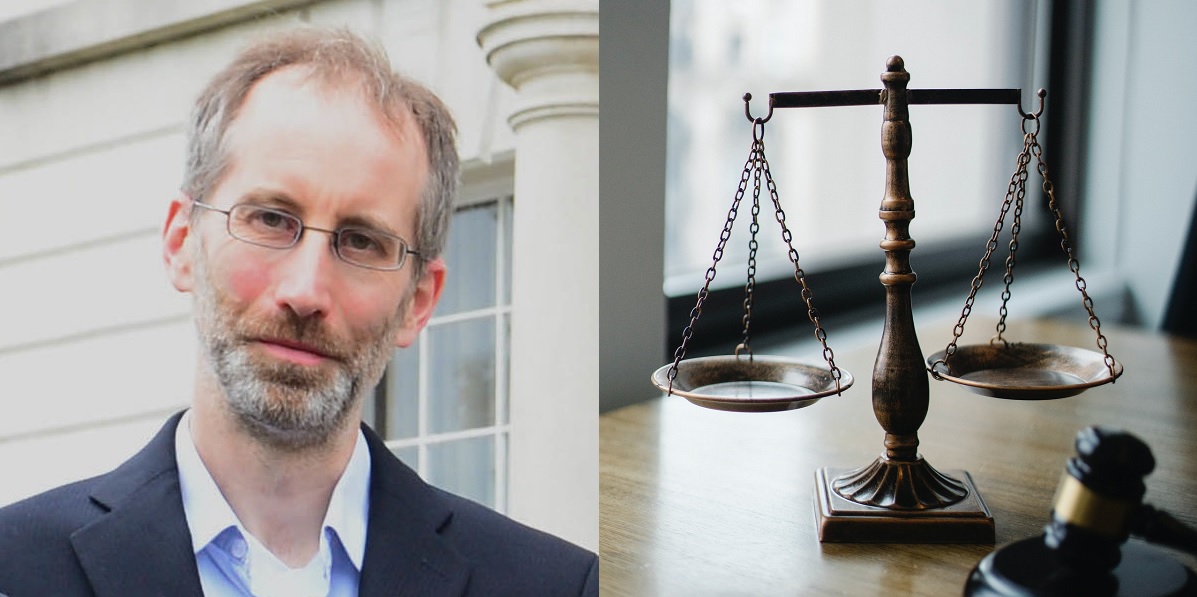
Dr. Rónán Kennedy will study algorithms, big data and artificial intelligence in the Irish legal services market during his three-month residency in the Oireachtas. Dr. Kennedy is one of six researchers seconded to the Houses of the Oireachtas Library & Research Service as part of the SFI (Science Foundation Ireland) public fellowship programme.
Imagine if an 18th century doctor found themselves into a modern hospital. The proliferation of technology would be quite confusing. Now imagine an 18th century lawyer required to work in a modern courtroom. It would feel very familiar to them. That may be about to change, rapidly and radically, because of the use of information and communications technology (ICT) for very new purposes – “lawtech”.
Technologists are applying algorithms, big data, and machine learning to radically re-configure how law operates in practice, for example, using it to analyse legal documents or predict the outcomes of cases. Judges are using big data and machine learning for bail and sentencing in the US. Lawtech is developing rapidly worldwide, and includes some Irish start-ups. The Covid-19 pandemic is a significant spur towards online services, and many courts moved to remote hearings in response. In the future, people may be able to access quick and inexpensive legal advice through their electronic devices. They might interact with a chatbot rather than with a person, technology which is already used for customer service, but has been applied to help challenge parking tickets.
However, there are many questions to be explored. If we are relying on AI apps to help answer legal questions, does this breach the prohibition on non-lawyers providing legal advice? Does it mean that people without ICT skills or broadband may be unable to access some legal services (as has happened with banking)? Will smaller law firms be able to keep up? Will there need to be legislative intervention to protect those who may become marginalised? Most importantly, how do we legislate for robot judges and lawyers? The use of AI in court has been controversial in the US, as the underlying data sets may replicate existing social biases and prejudices – but they may also be a means of identifying them.
Dr Rónán Kennedy is a lecturer in the School of Law at the National University of Ireland Galway, specialising in environmental law, information technology law, and the intersections between these. He was executive legal officer to the Chief Justice of Ireland, Mr. Justice Ronan Keane, from 2000 to 2004. Dr. Kennedy will prepare a Spotlight paper on the use of ICT in legal services and its economic, social, ethical implications. He hopes to take full advantage of the opportunity to see how the Oireachtas works, to better understand how legislation is written, and to inform Oireachtas members and the parliamentary community about the changes in the work of lawyers which technology is facilitating.
Dr. Kennedy, along with Dr. Boris Galkin, commenced his residency on 5 October. A total of six researchers have been seconded to the L&RS under the SFI public service fellowship programme. A total of six researchers have been seconded to the L&RS under the SFI public service fellowship programme. The purpose of the SFI public service fellowship programme is to enable academics to leverage their expertise by engaging with organisations in the public sector on issues relevant to their research. The Oireachtas Library & Research Service is a host organisation under the scheme. The fellowship provides an opportunity for researchers in residence to see how the Oireachtas works from the inside and ways in which they can be more effective in communicating their research to Members of the Oireachtas. The fellowship provides the L&RS and Members the opportunity to find out about emerging research in science and technology and the implications, impact and opportunities science creates.

